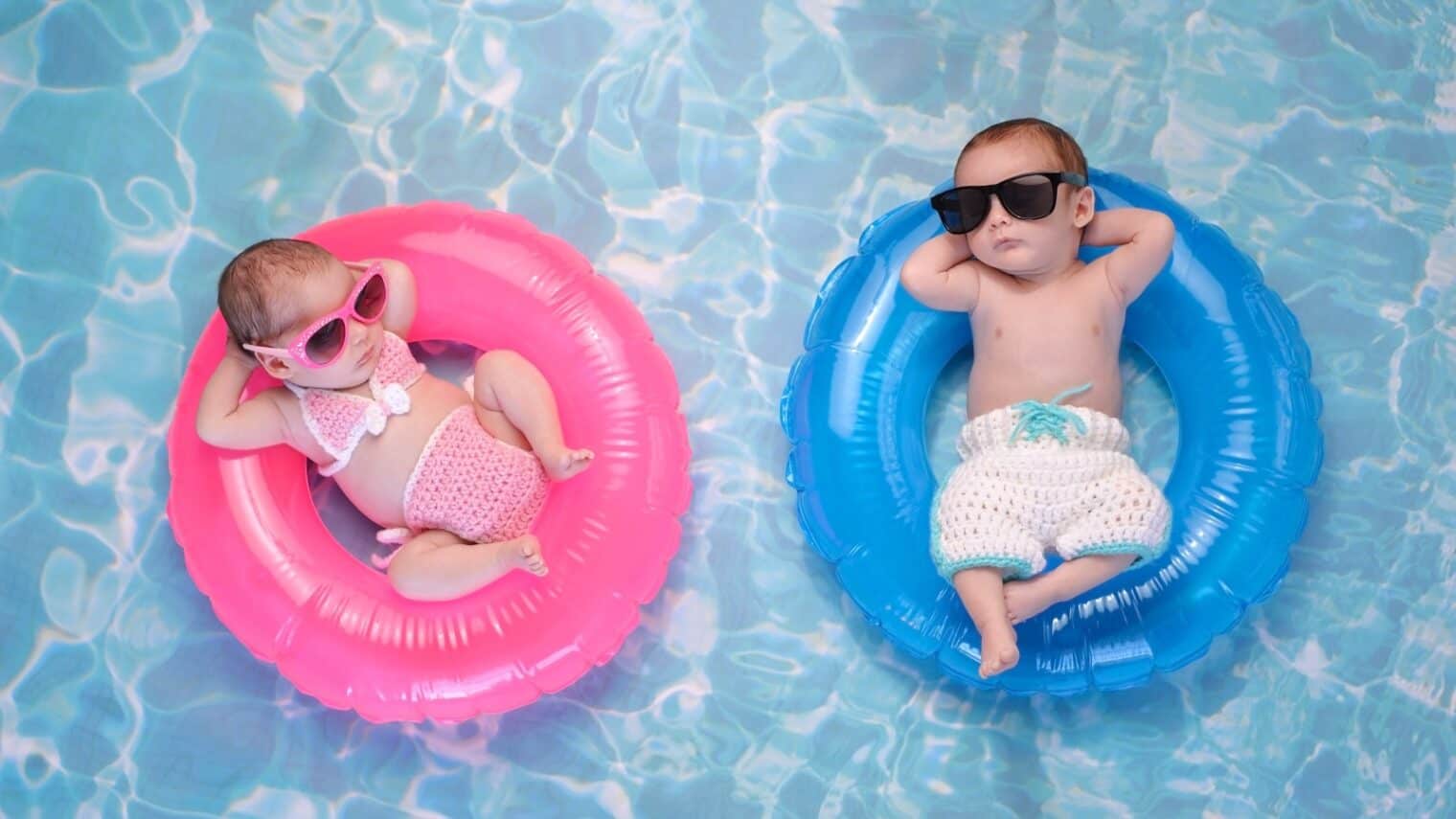The World Health Assembly (WHA) recently adopted its first-ever resolution on drowning prevention, noting that over 2.5 million people have drowned in the last decade. Children aged 1 to 9 experience the highest drowning rates.
This tragedy came very close to hitting the Weitzman family in 2016 when they were with their little boys in the shallow end of a country club pool in Tel Aviv.
“I was holding the baby and my older son was standing behind us, touching my shoulder, when all of a sudden he fell backwards into the pool and was squirming on the bottom,” Sam Weitzman recalls. “We got him out safely, but that really shook us up.”
Weitzman was working in finance at the time, and he was aware of new deep-learning artificial intelligence (AI) technologies being used for security detection. He thought this could be applied to pool safety, too.
“I wanted to design a solution suitable for every pool and affordable for every pool owner, because drowning is a top killer of kids and it’s just horrendous,” he tells ISRAEL21c.
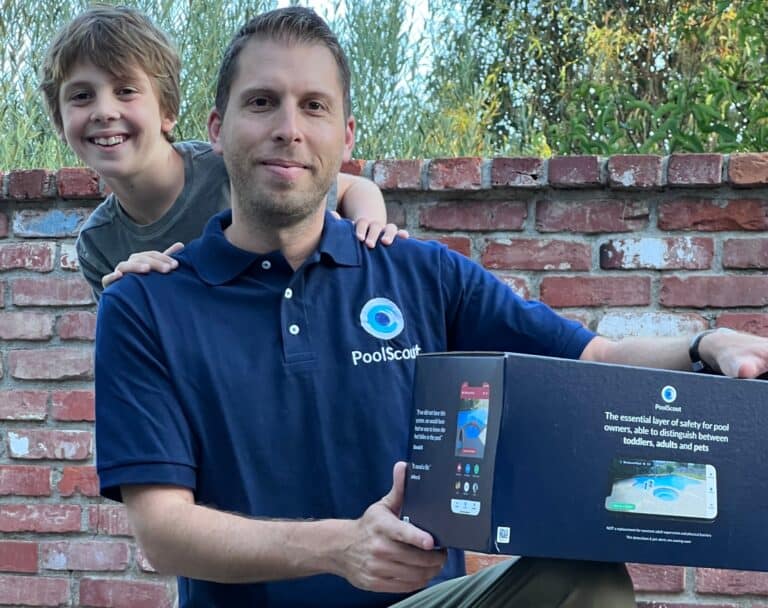
In the United States, drowning is the No. 1 cause of death for 1- to 4-year-olds — approximately 4,000 fatal and 8,000 non-fatal unintentional drownings a year, according to CDC statistics. An estimated 5,000 pets drown in backyard swimming pools each year as well.
By 2017, Weitzman had left his job to establish Deep Innovations, a company focused on creating what eventually became PoolScout.
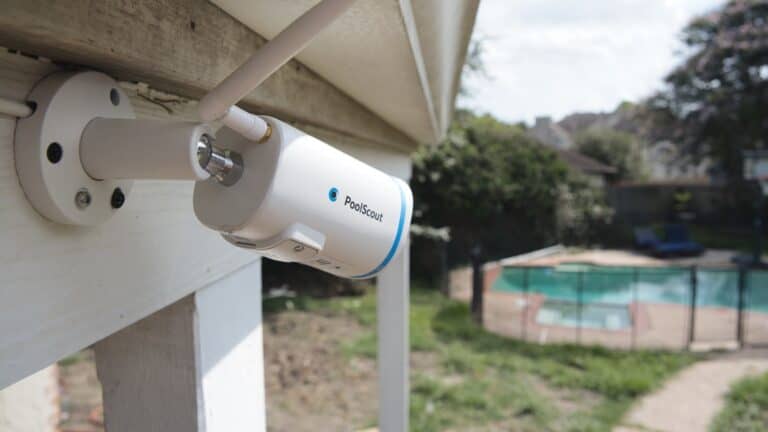
Using vision-based analytics and cloud-native AI, PoolScout detects and distinguishes toddlers (up to four years old) from other people, pets and objects in and around the pool. The system sounds an alert via smartphone app and an alarm unit when it identifies specific unsafe scenarios such as an unattended toddler in the pool area.
Based in the cloud
“We knew that PoolScout had to be cloud-based to be affordable and it was challenging to do real-time computer vision in the cloud,” Weitzman explains.
“Once we had the initial scope of how it would look, I started talking to US manufacturers of swimming pool equipment and we signed a strategic partnership with one for full development of the product. Through that partnership, we brought the product to market.”
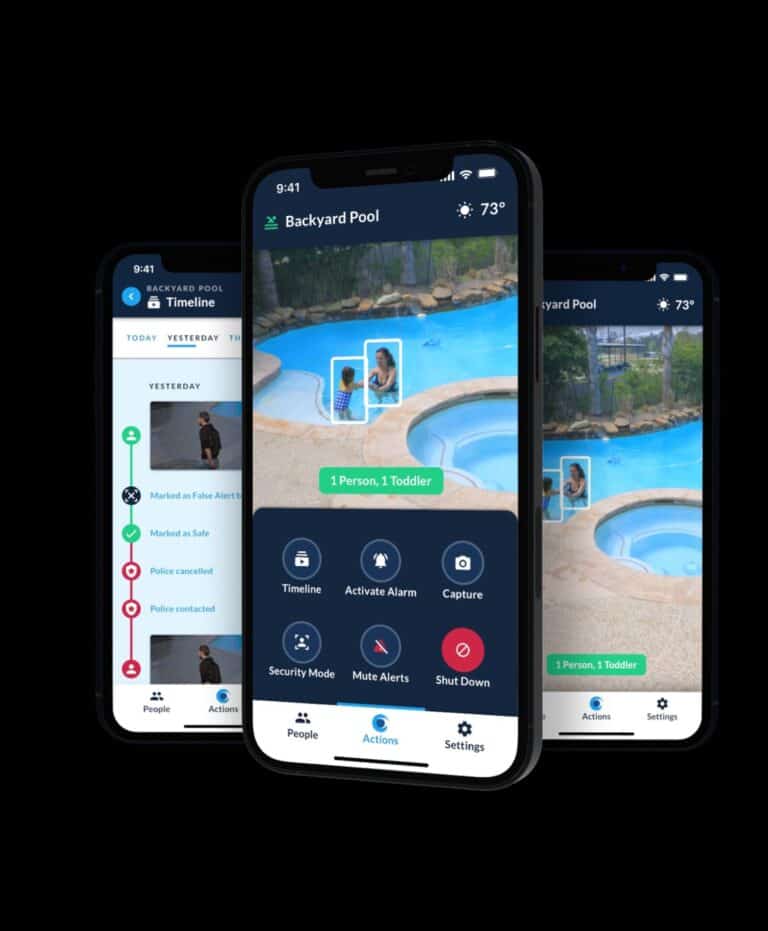
The wireless version was developed with the understanding that “to get this into as many homes as possible, we needed a Wi-Fi camera,” Weitzman says.
PoolScout Wifi can detect pets as well, sending notifications if a dog or a cat enters the pool area, and alerts if they enter the water.
Prices for PoolScout, which has won several awards, start at about $300 with the option to include a subscription for advanced features.
At the core of PoolScout is Deep Innovations’ proprietary ScoutX computer vision platform that is also being deployed in other verticals that Deep Innovations is moving into, says Weitzman.
Although the R&D is based in Tel Aviv, Deep Innovations was registered in the UK, where Weitzman was raised. The idea back then in 2017 was to facilitate distribution to Gulf States, which didn’t have diplomatic relations with Israel until the Abraham Accords were signed in 2020. The company is now expanding its US team.
PoolScout Pro (a professionally installed wired camera and alarm kit released in September 2022) and PoolScout Wi-Fi (a new version containing an easy-to-install Wi-Fi camera and wireless alarm unit) are available at Deep Innovations’ website; from Amazon; and through some home security and pool distributors in the United States, Gulf states and soon in Australia and Israel.
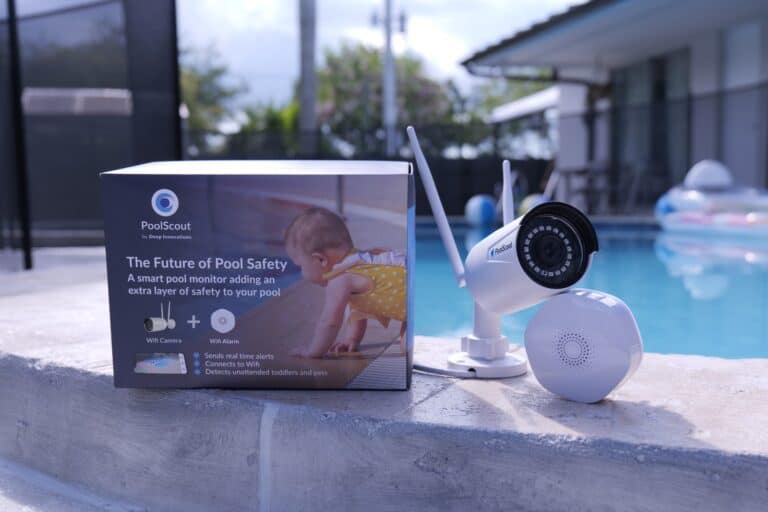
Israel is where the world’s first residential pool safety solution was invented — Mylo, an AI “virtual lifeguard” from Coral Smart Pool.
Mylo (about $1,500) uses above-water and underwater computer vision and movement analysis to alert when someone enters the pool or is in danger of drowning.




